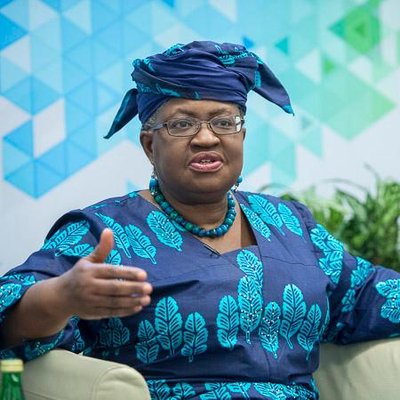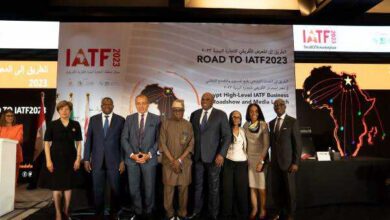WTO seeks more support for sustainable fisheries in developing, LDC nations
By JOHNMARK UKOKO

The World Trade Organisation (WTO) has canvassed greater support for fisheries development in developing and Least Developed Countries (LCD), insisting that financial assistance must be expanded to help such countries to enable them to established sustainable fisheries in light of historic WTO Agreement to curb harmful fishing subsidies.

Director-General of WTO, Dr. Ngozi Okonjo-Iweala, stated this during an Aid for Trades Global Review event at the weekend, where the Secretariat of the global trade organisation unveiled a new report.
The event also featured top officials from coastal economies and donor partners, who expressed support for channeling more resources towards sustainable fisheries.
At our 12th minister conference, WTO members adopted a new agreement on fisheries subsidies. The agreement is the first broadly focused binding multilateral agreement on ocean sustainability and the first WTO agreement with environmental sustainability at its core.
Okonjo-Iweala used the opportunity to urge members to formally accept the agreement so that it can enter into force, stressing that for developing countries and LDC members, implementation would take time, effort and money.
Read Also: Edo poised to bridge 20percent of Nigeria’s supply gap for oil palm products – Obaseki
She maintained that there were several tasks ahead, such as integrating fisheries related elements into subsidy policies and meeting new notification requirements, particularly on fisheries-related information.
“The WTO new report titled: _Implementing The WTO Agreement On Fisheries Subsidies: Challenges And Opportunities For Developing And Least Developed Country Members_, helps to set the context for this important conversation, Okonjo-Iweala said.
She also disclosed that 65 per cent of $5 billion in assistance earmarked for fisheries and the ocean economy between 2010 and 2020 targeted sustainable fisheries according to data from the organization for Economic Co-operation and Development (OECD) as presented in the report.
“One telling statistics from the report though, is that the assistance to sustainable marine fisheries over 10 years had been dwarfed by the annual $22 billion in harmful fisheries subsidies.
“Eliminating these subsidies would in principle unlock a huge amount of resources that could be redirected to promote and support sustainable fisheries management and practices by all members including developing and LDC members,” she stated.
She further explained that the move will draw attention to the voluntary WTO Fisheries Funding Mechanism, which is captured in the agreement to fill gaps in existing assistance and thus ensure that beneficiaries have what they need to fully implement the new WTO rules.
The fund will be operated by the WTO along with the Food and Agriculture Organisation (FAO), the World Bank and the International Fund for Agricultural Development (IFAD), adding: “Donors to the Fund already have pledged around half of our initial target of $10 million, and we are to get it up and running quickly.”
In his presentation, Ambassador Mere Falemaka of the Pacific Island Forum Secretariat and Ambassador Muhammaduou Kah of the Gambia, affirmed that developing country members and LDCs will need assistance to implement the Agreement for example to meet notification requirements, to establish mechanisms to withdraw prohibited subsidies and to reform subsidy policies dispersed in various legislation.
Kah also noted that stock assessments and other features of fisheries management can be costly and will require immediate support, stressing that the agreement establishes several opportunities to change the status quo, contribute to ocean sustainability, contribute to the livelihoods of fishing communities and implement good practices.




